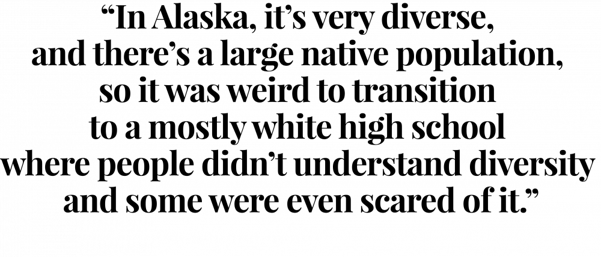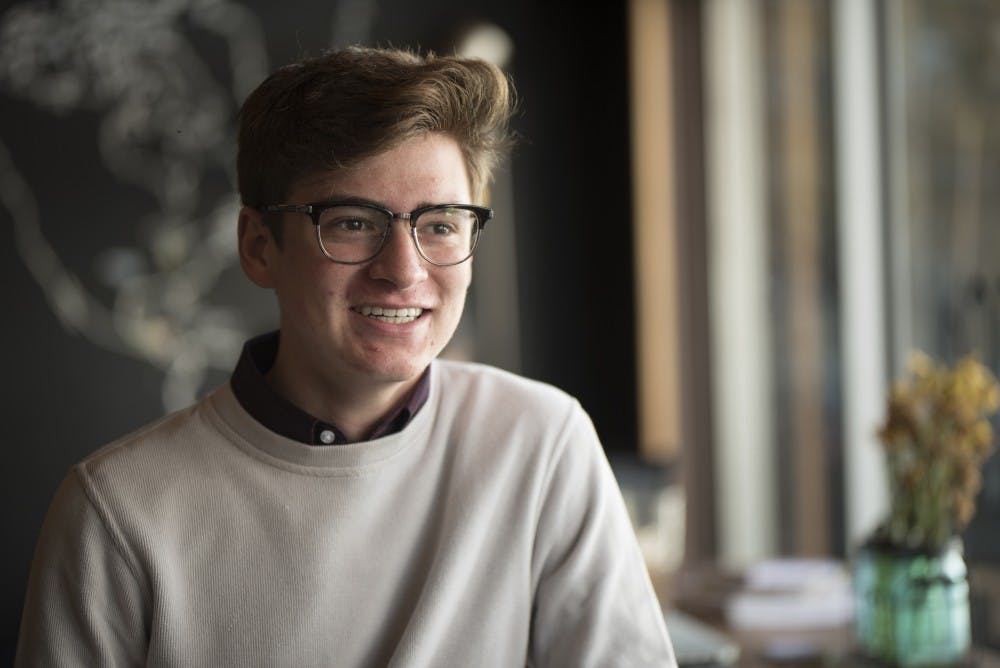This story is part of a series of profiles of students of Native American heritage at IU. This series is meant to celebrate Native American Heritage Month, which is dedicated to sharing the experiences of contemporary native culture, not just the history. You can read part two of the series here and part three here.
To pass the time in their dorms, freshman Caleb King sometimes will teach his friends popular native dances he learned as a child. For his friends, it is a fun learning experience. For King, it is an integral part to keeping his heritage alive.
“Dance is a huge part of our culture, especially since we don’t have any written word,” he said.
King is one of 44 students at IU who identify with Native American heritage. Moving from Alaska to Indiana without his family when he was about 15 years old, he is still learning new ways to embrace his culture and stay connected to his tribes in Alaska.
King is enrolled in two tribes in Alaska, the Seldovia and Koniag Village Tribes. King said those with blood descent from a tribe will become members. In Alaska native culture, most members will enroll at birth, but King enrolled later in his life around age 5.
While he still stayed connected with the tribes and visited them many times in high school, he has decided to stay at IU away from his family to pursue a degree in Healthcare Management and Policy.
“Everyone (in the tribe) wants us to go out and get an education, they just don’t want us to sacrifice our values along the way,” he said.
One of the most important values in his tribes is the desire to help others before himself. For example, the younger members of the tribe will often hunt and give surpluses to their elders to give thanks, he said.
"You have to think about others first," he said.
King said he hopes to use his degree to return to Alaska and work to provide better health care for the indigenous population.
Even inside his local hospital in Alaska, there is an open circular space used for dance groups. He said the first dance he learned from them as a child was about fishing in an ice hole.
King said some dances can demonstrate what it looks like to hunt, which is often taught to children so they can remember the process. Others are used to talk about men going to war and the lives they have lost.
“Sometimes the sun comes up and comes down and you’re still waiting for a fish,” he said, as he made the motions of yanking up a fishing pole.
Although he spoke highly of his overall experience at IU, especially with his supportive friend group, he said transitioning to Indiana in general was very different than what he knew from Alaska.

“The culture in Alaska is hugely different than in Indiana,” he said. “In Alaska, it’s very diverse, and there’s a large native population, so it was weird to transition to a mostly white high school where people didn’t understand diversity and some were even scared of it.”
For King, living in an area with a small native population meant he would have to battle the stigmas against Native Americans with even more diligence.
“In the past, there’s been a lot of shame in being native,” he said. “We live in a society where practicing your culture is unacceptable.”
In his daily life, King said that he experiences microaggressions against his culture, such as when people question the validity of his heritage because he does not look like a stereotypical Native American.
In response, King joined the First Nations Educational and Cultural Center to find a place where he can express his heritage without judgment.
In addition to making connections within the native community, King uses the FNECC to interact with nonnative students as well. He said he appreciates when students express genuine curiosity about his culture.
“We can teach and learn from each other, it goes both ways,” he said. "No question is a dumb question."
Ultimately, to acknowledge native heritage is contemporary is the most important part of overcoming obstacles between cultures, King said.
“We aren’t just relics," he said. "We aren’t all dead. We don’t all live on reservations. We’re facing the same issues as everyone else."
Christine Stephenson




